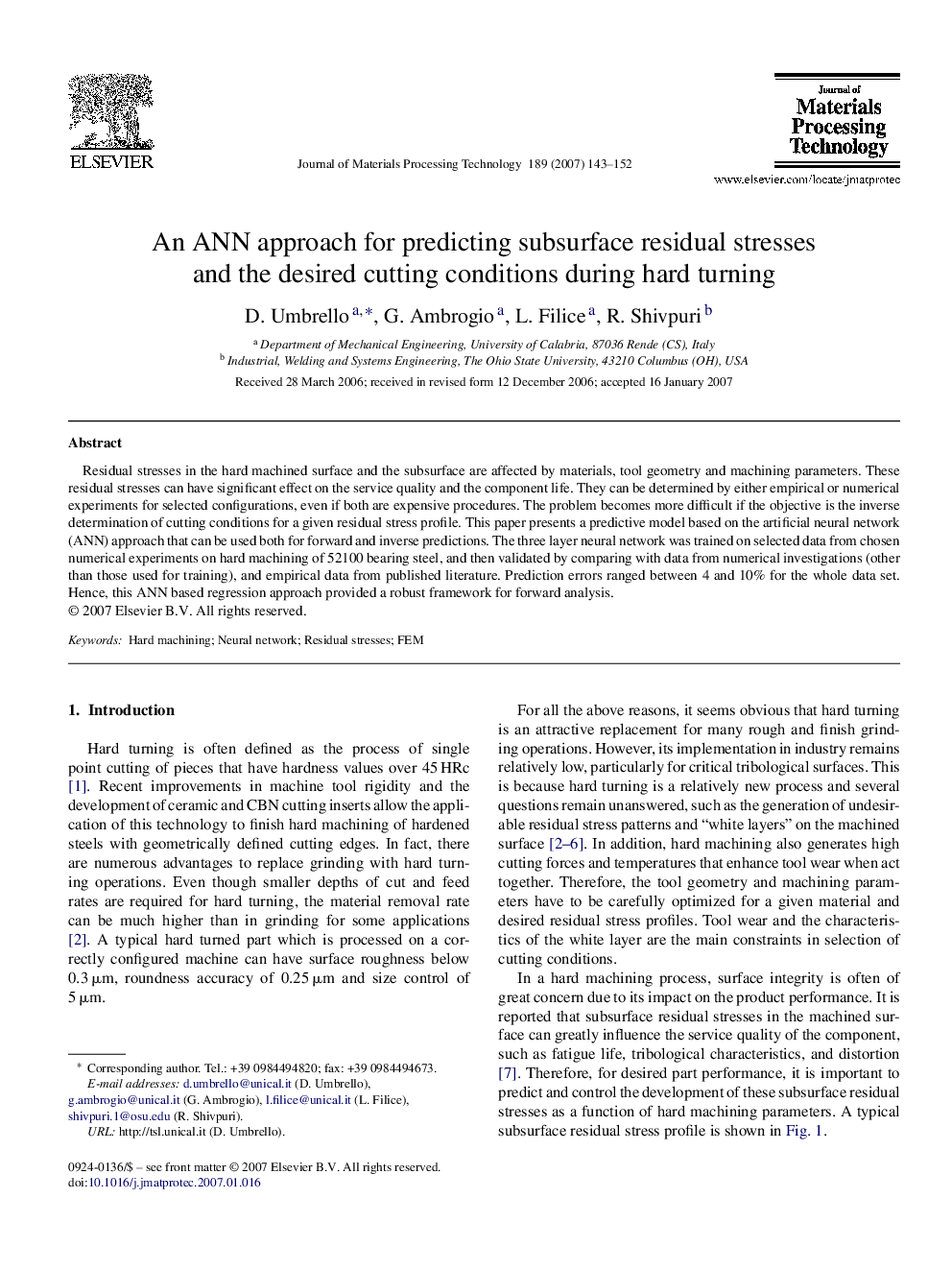| Article ID | Journal | Published Year | Pages | File Type |
|---|---|---|---|---|
| 795725 | Journal of Materials Processing Technology | 2007 | 10 Pages |
Residual stresses in the hard machined surface and the subsurface are affected by materials, tool geometry and machining parameters. These residual stresses can have significant effect on the service quality and the component life. They can be determined by either empirical or numerical experiments for selected configurations, even if both are expensive procedures. The problem becomes more difficult if the objective is the inverse determination of cutting conditions for a given residual stress profile. This paper presents a predictive model based on the artificial neural network (ANN) approach that can be used both for forward and inverse predictions. The three layer neural network was trained on selected data from chosen numerical experiments on hard machining of 52100 bearing steel, and then validated by comparing with data from numerical investigations (other than those used for training), and empirical data from published literature. Prediction errors ranged between 4 and 10% for the whole data set. Hence, this ANN based regression approach provided a robust framework for forward analysis.
